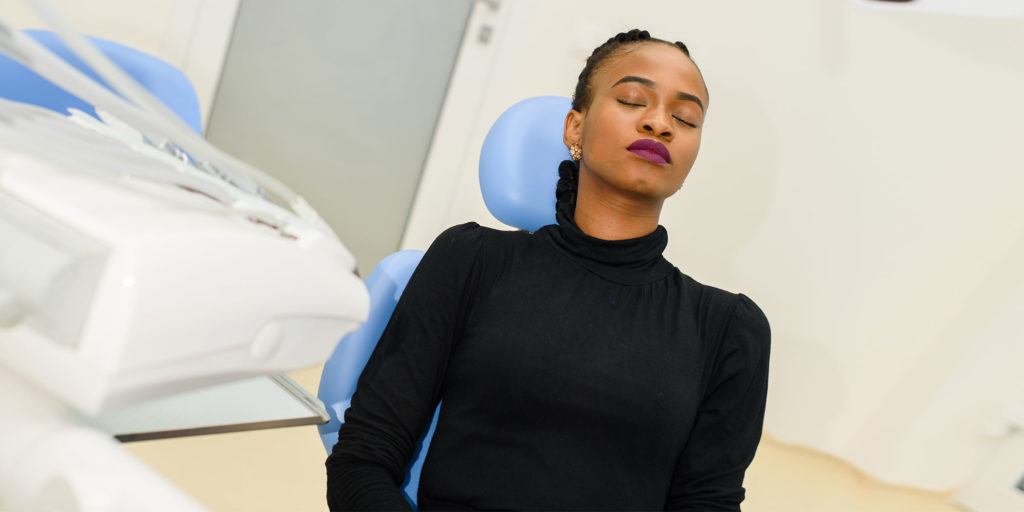

Are you putting off essential dental care due to anxiety? You’re not alone. Many patients struggle with going to the dentist, but sedation dentistry can help. At Tharp, Klaus, & Kelly Dental Clinic in Flowood, MS, we understand that dental anxiety can prevent you from receiving necessary treatment. Our comprehensive oral conscious sedation services help patients relax while receiving the care they need.
Call our sedation dentist in Flowoodat (601) 939-4100today to learn how sedation dentistry can transform your dental experience.


Oral sedationrepresents one of the most widely used sedation techniquesin modern dentistry. Unlike IV sedation or general anesthesia, oral conscious sedation offers a simple yet powerful solution for dental anxiety. This type of sedation involves taking prescribed sedative drugs in pill form before your dental appointment, allowing you to remain conscious while experiencing deep relaxation throughout your procedure.
When you receive oral sedation, the medications work directly with your central nervous system to create a profound sense of calm. While you’ll maintain consciousness during dental procedures, you’ll feel significantly more relaxed than with minimal sedation methods like nitrous oxide (laughing gas). Most dentists find that conscious sedation drugs provide an ideal balance of comfort and safety for patients undergoing dental treatment.
The effects of oral sedation typically begin before your procedure begins and can last throughout lengthy procedures, making it an excellent choice for:
Perfect for patients with mild anxiety or simple dental procedures. Under minimal sedation, you’ll feel relaxed while remaining fully alert and able to respond to your dentist’s instructions.
This deeper level of conscious sedation dentistry helps patients with more significant anxiety or those undergoing longer dental procedures. While you’ll stay conscious, you may feel drowsy and have limited memory of the treatment.
For complex oral surgery or severely anxious patients, deep sedation provides profound relaxation without making you completely unconscious. This option requires additional monitoring of vital signs and is typically reserved for specific cases.
Sedation dentistry offers numerous advantages for patients:
Before administering any type of sedation, we conduct a thorough review of your:
During your dental procedure, our team carefully tracks your:
Our dental professional team provides:
While under oral sedation or conscious sedation, you’ll:
Following sedation dentistry treatment:

Oral conscious sedation may be ideal if you:
The effects typically last two to eight hours, depending on the medications used and individual factors. Plan to take the rest of the day off and arrange for someone to drive you home.
While under conscious sedation, you’ll remain comfortable throughout your treatment. Local anesthesia is still used for numbing medication, and the sedative helps reduce anxiety and create a more relaxed experience.
Yes, when administered by qualified dental professionals, oral sedation and conscious sedation have excellent safety records. Your dental sedation team carefully monitors you throughout the procedure and has reversal agents available if needed.
Follow all pre-procedure instructions, including any fasting guidelines. Arrange for transportation and plan to rest afterward. The dentist makes specific recommendations based on your individual case.
Don’t let dental anxiety prevent you from maintaining your oral health. At Tharp, Klaus, & Kelly Dental Clinic, we specialize in helping patients overcome their fears through safe, effective sedation dentistry. Our Flowood dental office welcomes patients from Brandon, Pearl, and Madison seeking comfortable, stress-free dental care.
Contact usat (601) 939-4100to schedule your consultation and discover how oral sedation can make your dental visits more comfortable. Let our experienced team help you achieve optimal oral health in a relaxing, supportive environment.

I understand the information disclosed in this form may be subject to re-disclosure and may no longer be protected by HIPAA privacy regulations and the HITECH Act.